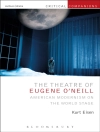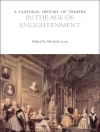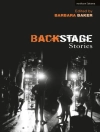Offers a fresh approach to German film studies by tracing key genres — including horror, the thriller, Heimat films, and war films — over the course of German cinema history
Over the last few decades, the field of film studies has seen a rise in approaches oriented toward genre: studies that look at thematic, narrative, and stylistic similarities between films, contextualizing them within culture andsociety. Although there now exists a large body of genre-based scholarship on international film, German film studies has largely ignored the importance of genre. Even as the last several years have witnessed increasing scholarlyinterest in popular cinema from Germany, very few works have substantively engaged with genre theory.
Generic Histories offers a fresh approach, tracing a series of key genres — including horror, science fiction, the thriller,
Heimat films, and war films — over the course of German cinema history. It also addresses detective films, comedies,
policiers, and romances that deliberately localize global genres within Germany – aform of transnationalism frequently neglected. This focus on genre and history encourages rethinking of the traditional opposition (and hierarchy) between art and popular cinema that has informed German film studies. In these ways, the volume foregrounds genre theory’s potential for rethinking film history as well as cultural history more broadly.
Contributors: Marco Abel, Nora M. Alter, Antje Ascheid, Hester Baer, Steve Choe, Paul Cooke, Jaimey Fisher, Gerd Gemünden, Sascha Gerhards, Lutz Koepnick, Eric Rentschler, Kris Vander Lugt. Jaimey Fisher is Associate Professor of German and Cinema and Technocultural Studies, and Director of Cinema and Technocultural Studies, at the University of California, Davis.
İçerik tablosu
Introduction: Toward Generic Histories – Film Genre, Genre Theory, and German Film Studies
Parallel Modernities: From Haunted Screen to Universal Horror
The Essay Film and Its German Variations
The Limits of Futurity: German Science-Fiction Film over the Course of Time
The Situation Is Hopeless, but Not Desperate: UFA’s Early Sound Film Musicals
Resisting the War (Film): Wicki’s ‘Masterpiece’
Die Brücke and Its Generic Transformations
Ironizing Identity: The German Crime Genre and the Edgar Wallace Production Trend of the 1960s
From Siodmak to Schlingensief: The Return of History as Horror
Producing Adaptations: Bernd Eichinger,
Christiane F., and German Film History
Exceptional Thrills: Genrification,
Dr. Mabuse, and
Das Experiment
The Heimat Film in the Twenty-First Century: Negotiating the New German Cinema to Return to
Papas Kino
The Romantic Comedy and Its Other: Representations of Romance in German Cinema since 1990
Yearning for Genre: The Films of Dominik Graf
Bibliography
Notes on the Contributors
Index












